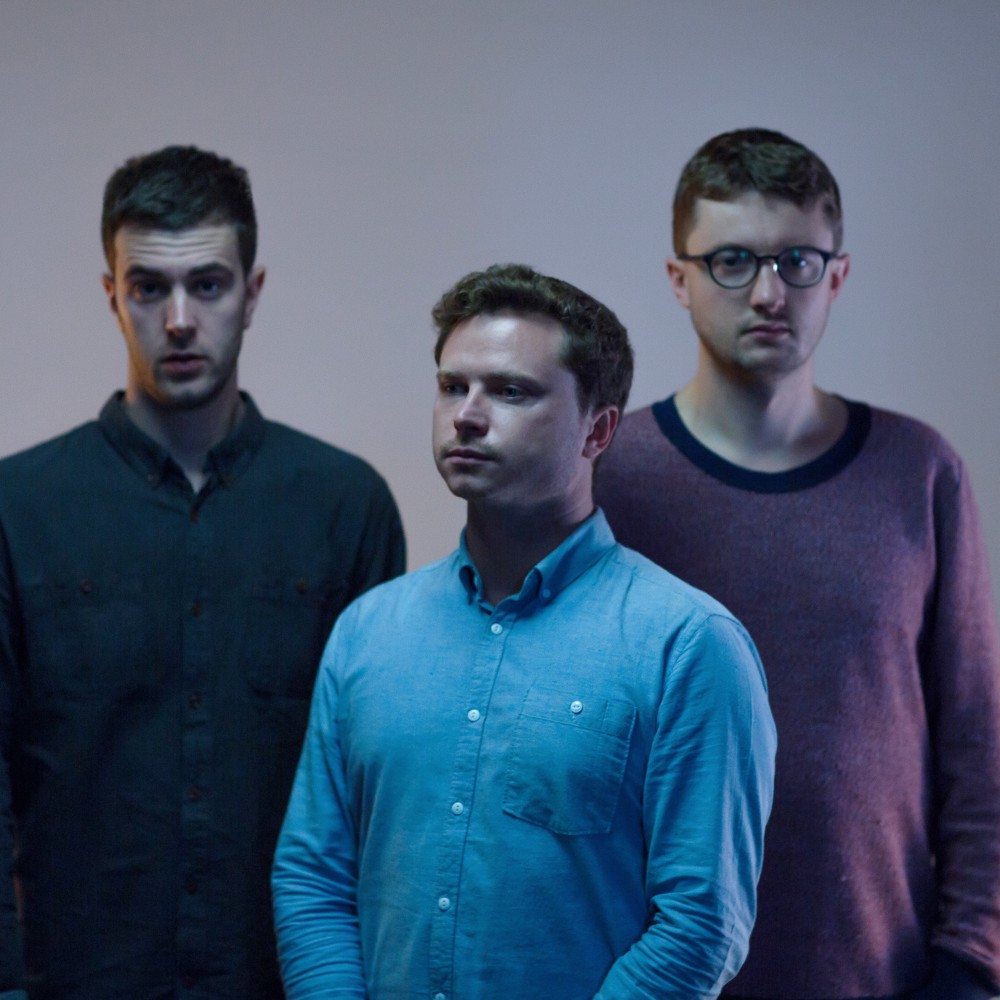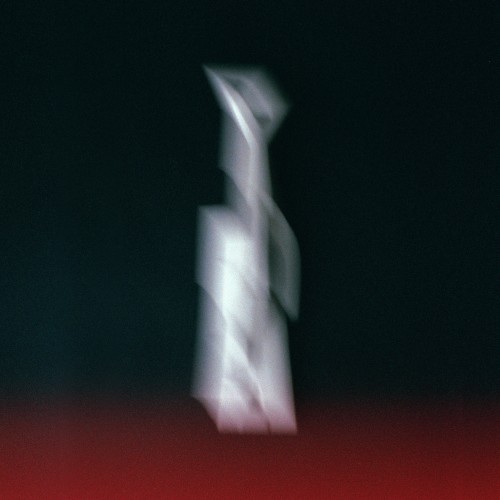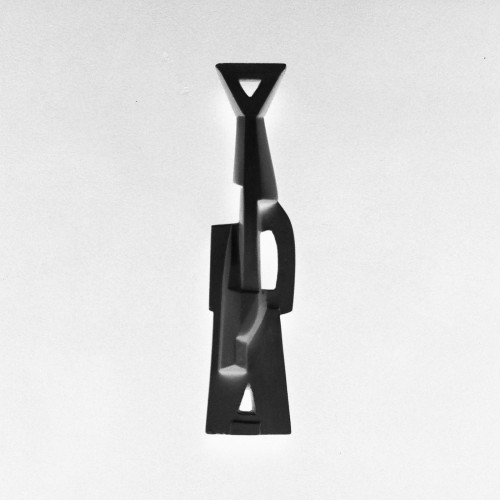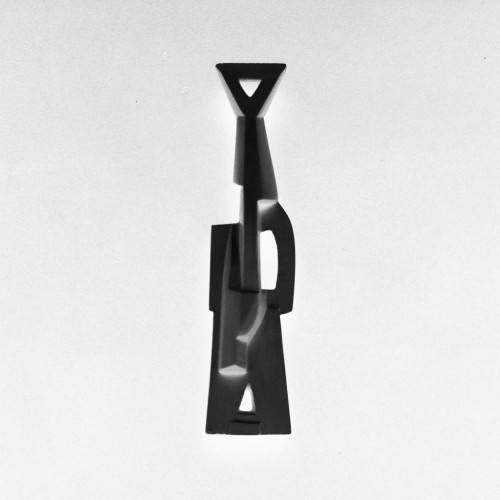
Portico
On Ninja Tune
BIOGRAPHY
If the name PORTICO seems familiar, that’s probably understandable, as is the fact that the faces behind it may seem recognisable too. As Portico Quartet, Jack Wyllie, Duncan Bellamy, Milo Fitzpatrick and then member Nick Mulvey released their first album together – the Mercury Music Prize nominated Knee-Deep In The North Sea – back in 2007, but things around a group change,...
If the name PORTICO seems familiar, that’s probably understandable, as is the fact that the faces behind it may seem recognisable too. As Portico Quartet, Jack Wyllie, Duncan Bellamy, Milo Fitzpatrick and then member Nick Mulvey released their first album together – the Mercury Music Prize nominated Knee-Deep In The North Sea – back in 2007, but things around a group change, especially when you start out so young, and by the time Mulvey’s successor, Keir Vine, had also moved on, the three London based musicians realised that they were no longer satisfied by the music they were making. They had, as they put it, “gone as far as they could”. It was early 2013 - they’d all grown up, and were no longer a quartet either. This time, they decided, it was their turn to make the changes.
LIVING FIELDS is the debut album by PORTICO, and if the people – and the name they employ – seem familiar, rest assured that the music they make is not. Gone are the hang drum, the saxophone and the drum kit with which they first caught the world’s attention. What emerges instead is – put simply – startling. The people are the same, but the band’s been transformed. PORTICO and LIVING FIELDS are the proof, and one listen makes it clear that this is almost entirely new territory for Fitzpatrick, Wyllie and Bellamy. Sparse, immersive and spectral, it’s an album that is at once substantial and yet insubstantial, capable of absorbing one into an intricate sonic world whose fundamental components seem paradoxically intangible.
The temptation might be to define LIVING FIELDS as an “electronic” album. As Bellamy points out, however, plenty of its components come from an analogue world. “I don't think we feel that it's overtly 'electronic',” he elaborates, “in the way that, say, Aphex Twin or Autechre are defined by the association. For starters, there's piano, guitar and bass on the record – though we usually try and treat them in an interesting way – as well as field recordings. For example, in ‘Void’ there’s a recording of a very large, old ship being torn apart, which ties into the concepts of decay and disintegration which run through the album. But a lot of the sounds are electronic and come from synthesisers, samplers or drum machines. Even most of the more acoustic sounds are mediated by effects or computers somehow.”
As it happens, the process of change began some time ago, and arguably, Mulvey’s departure from the ranks in 2011 was connected to this gradual metamorphosis. As Bellamy admits, “We were getting interested in electronics, and finding more ways we could expand the band’s sound, and as we were getting more enthusiastic, Nick was beginning to feel like his role was literally getting drowned out, and was becoming more interested in his own music”.
By late 2012, the band had reached a crossroads. The three of them, plus Vine, had experimented with new approaches, as well as vocalists, on that year’s eponymous album, but afterwards they found themselves in musical disarray. As Fitzpatrick recalls, “We just had this massive existential crisis, where we were like, I don’t think we want to do this any more, do we? No one seemed to be very enthusiastic about that current state of the band.” Wyllie underlines this: “It was a good time to take a step back, to really examine what we were collectively willing to do, and what we were interested in.”
In trying to rediscover what it was that had first brought them together, the musicians learned one crucial lesson: if they could identify their initial chemistry, then they could salvage the very essence of their creative energy. “That's the point we decided to draw a line under the old Portico Quartet,” Bellamy says, “and just do something that was really different and new, and a challenge for us again. It worked, because we suddenly felt way more invigorated and passionate about making music together again.” ‘Portico Quartet’, they understood at last, was merely the name of a project on which they’d collaborated. ‘PORTICO’ would be another.
This realisation, and the freedom that it allowed them, enabled the trio to reinvent themselves. Conscious that they were simultaneously the same band, and yet a new one, they chose to drop the ‘Quartet’ from their name as a symbol of their new beginnings, but to keep ‘Portico’ as, in Fitzpatrick’s words, “an acknowledgement that we are the same three people, with a certain chemistry, looking for the same things.” What followed was, in a sense, a return to their roots: though tracks were still built up using loops and individual sections, they embarked on more structured material, just as they had on their debut. “One of the things we were interested in, especially in the early stuff, was song writing,” Wyllie explains, “but by the third album we’d started to explore textures.” As a rejuvenated unit, PORTICO now incorporate both these elements into their music, with the likes of the title track, "101", "Colour Fading" and "Bright Luck" all strikingly melodic but elaborately arranged. “In the past,” Bellamy points out, “we had always written all together, playing through the compositions and arrangements with all our instruments. Once we were finished we would go to a studio to record it all live, and then do overdubs. This time we just invested in some gear for our studio and started recording directly onto the computer. If someone had an idea, we would put it down straight away, and that could be the finished track. It was quite liberating because suddenly we had way more control of the recording process.”
What subsequently materialised is, as they themselves describe it, “music which moves forward towards distant places while offering rare intimacy, arriving somewhere between structured pop songs and a disintegrating ambience, a unique blend of the sublunary and the celestial.” They were inspired by leftfield artists like William Basinski and Tim Hecker – with whose music theirs shares what Wyllie describes as “this feeling of something breaking up and falling apart” – and a crucial moment in their development came when they were asked by the Royal Academy of Art to write music for an exhibition about space and architecture in early 2014. “That opened up a new sound world,” Fitzpatrick says. “ ‘Void’ is actually from that session, and ‘Dissolution’ too.”
Aware that they were ready to work with vocalists, they sought suitable candidates, and eventually alighted on three singers with whom they already had a connection, and whose distinctive voices matched what they had in mind. The first part of the puzzle was Alt-J’s Joe Newman: he’d grown up two doors down from Wyllie in Southampton, where Fitzpatrick was also raised, and they’d always been mutual fans of each other’s music. His initial contribution, "101", was the proof PORTICO needed that their musical gamble had paid off, and he soon delivered further tracks, "Brittle" and "Atacama". “He’s obviously a really talented songwriter,” Wyllie states. “He just kept coming out with these great melodies, really quickly too. It helps collaborating with people if you’ve got a personal connection.” It was the personal connection that seemed vital: Old friend, and former Portico house mate, Jamie Woon, also came on board for the epic "Memory Of Newness": They’d always wanted to work together in the past, but only now did the material suit the concept. Woon, in turn, had introduced the band to Jono McCleery, One of the band’s favourite singers, he had opened for Portico Quartet at the ICA a few years earlier and, as with Jamie and Joe, the collaboration flowed naturally. The songs on which they would go on to collaborate were so successful that McCleery was invited to join the band to help play the new material live, and the album takes its title from one of their collaborations, the darkly hypnotic Living Fields.
From the outset, PORTICO insisted that LIVING FIELDS maintain an overarching concept, rather than being, as Wyllie puts it, “a collection of songs with totally disparate, unrelated lyrics”. Each of the band’s members had been forced to confront various diverse private issues in the preceding period of time, and they wanted the record to remain personal to them, despite these outside collaborators. Their search for a method of articulating the relevant themes included work by Herman Hesse and Philip Larkin, but eventually they found the touchstone they were searching for in the shape of an award-winning Chilean documentary, Nostalgia For The Light.
The film crystallised many of the topics that they’d been addressing amongst themselves – the search for identity, the significance of memory, questions about life and death, the way that each answer we uncover can provoke further mysteries – and they asked McCleery, Woon and Newman to view it before they wrote their lyrics. “It wasn’t like we watched it and said, Let’s make an album about that,” Wyllie clarifies. “It was, Let’s find something that we can use to inspire some singers that connects to what we’re thinking.” It was the final detail in the making of an extraordinary, enigmatic but unified record, and, just as some of the sounds seem to veer in and out of focus, so words and phrases drift through a haze of reverb-drenched pianos, synth arpeggios, subterranean bass and ambient noise, all punctured by illuminated shards of programmed and live drums.
The results are unlike anything else that’s come before and, for all the band know, may even be unlike anything they do in the future. As Fitzpatrick concludes, “This is just one album. Who knows what the next one’s going to be like? We’re taking it one step at a time. What we’ve learned is that it’s really all about us three.”
Welcome, then, PORTICO and their LIVING FIELDS: a bold, adventurous step into the unknown that bravely inspires as many questions as answers. As Hermann Hesse wrote in Stages, a poem from The Glass Bead Game that became one of the band’s maxims:
“Serenely they let us move to distant places, And let no sentiment of home detain us. The Cosmic Spirit seeks not to restrain us But lifts us stage by stage to wider spaces.”
Portico
On Ninja Tune
Albums
Latest News
BIOGRAPHY
If the name PORTICO seems familiar, that’s probably understandable, as is the fact that the faces behind it may seem recognisable too. As Portico Quartet, Jack Wyllie, Duncan Bellamy, Milo Fitzpatrick and then member Nick Mulvey released their first album together – the Mercury Music Prize nominated Knee-Deep In The North Sea – back in 2007, but things around a group change, especially when you...
If the name PORTICO seems familiar, that’s probably understandable, as is the fact that the faces behind it may seem recognisable too. As Portico Quartet, Jack Wyllie, Duncan Bellamy, Milo Fitzpatrick and then member Nick Mulvey released their first album together – the Mercury Music Prize nominated Knee-Deep In The North Sea – back in 2007, but things around a group change, especially when you start out so young, and by the time Mulvey’s successor, Keir Vine, had also moved on, the three London based musicians realised that they were no longer satisfied by the music they were making. They had, as they put it, “gone as far as they could”. It was early 2013 - they’d all grown up, and were no longer a quartet either. This time, they decided, it was their turn to make the changes.
LIVING FIELDS is the debut album by PORTICO, and if the people – and the name they employ – seem familiar, rest assured that the music they make is not. Gone are the hang drum, the saxophone and the drum kit with which they first caught the world’s attention. What emerges instead is – put simply – startling. The people are the same, but the band’s been transformed. PORTICO and LIVING FIELDS are the proof, and one listen makes it clear that this is almost entirely new territory for Fitzpatrick, Wyllie and Bellamy. Sparse, immersive and spectral, it’s an album that is at once substantial and yet insubstantial, capable of absorbing one into an intricate sonic world whose fundamental components seem paradoxically intangible.
The temptation might be to define LIVING FIELDS as an “electronic” album. As Bellamy points out, however, plenty of its components come from an analogue world. “I don't think we feel that it's overtly 'electronic',” he elaborates, “in the way that, say, Aphex Twin or Autechre are defined by the association. For starters, there's piano, guitar and bass on the record – though we usually try and treat them in an interesting way – as well as field recordings. For example, in ‘Void’ there’s a recording of a very large, old ship being torn apart, which ties into the concepts of decay and disintegration which run through the album. But a lot of the sounds are electronic and come from synthesisers, samplers or drum machines. Even most of the more acoustic sounds are mediated by effects or computers somehow.”
As it happens, the process of change began some time ago, and arguably, Mulvey’s departure from the ranks in 2011 was connected to this gradual metamorphosis. As Bellamy admits, “We were getting interested in electronics, and finding more ways we could expand the band’s sound, and as we were getting more enthusiastic, Nick was beginning to feel like his role was literally getting drowned out, and was becoming more interested in his own music”.
By late 2012, the band had reached a crossroads. The three of them, plus Vine, had experimented with new approaches, as well as vocalists, on that year’s eponymous album, but afterwards they found themselves in musical disarray. As Fitzpatrick recalls, “We just had this massive existential crisis, where we were like, I don’t think we want to do this any more, do we? No one seemed to be very enthusiastic about that current state of the band.” Wyllie underlines this: “It was a good time to take a step back, to really examine what we were collectively willing to do, and what we were interested in.”
In trying to rediscover what it was that had first brought them together, the musicians learned one crucial lesson: if they could identify their initial chemistry, then they could salvage the very essence of their creative energy. “That's the point we decided to draw a line under the old Portico Quartet,” Bellamy says, “and just do something that was really different and new, and a challenge for us again. It worked, because we suddenly felt way more invigorated and passionate about making music together again.” ‘Portico Quartet’, they understood at last, was merely the name of a project on which they’d collaborated. ‘PORTICO’ would be another.
This realisation, and the freedom that it allowed them, enabled the trio to reinvent themselves. Conscious that they were simultaneously the same band, and yet a new one, they chose to drop the ‘Quartet’ from their name as a symbol of their new beginnings, but to keep ‘Portico’ as, in Fitzpatrick’s words, “an acknowledgement that we are the same three people, with a certain chemistry, looking for the same things.” What followed was, in a sense, a return to their roots: though tracks were still built up using loops and individual sections, they embarked on more structured material, just as they had on their debut. “One of the things we were interested in, especially in the early stuff, was song writing,” Wyllie explains, “but by the third album we’d started to explore textures.” As a rejuvenated unit, PORTICO now incorporate both these elements into their music, with the likes of the title track, "101", "Colour Fading" and "Bright Luck" all strikingly melodic but elaborately arranged. “In the past,” Bellamy points out, “we had always written all together, playing through the compositions and arrangements with all our instruments. Once we were finished we would go to a studio to record it all live, and then do overdubs. This time we just invested in some gear for our studio and started recording directly onto the computer. If someone had an idea, we would put it down straight away, and that could be the finished track. It was quite liberating because suddenly we had way more control of the recording process.”
What subsequently materialised is, as they themselves describe it, “music which moves forward towards distant places while offering rare intimacy, arriving somewhere between structured pop songs and a disintegrating ambience, a unique blend of the sublunary and the celestial.” They were inspired by leftfield artists like William Basinski and Tim Hecker – with whose music theirs shares what Wyllie describes as “this feeling of something breaking up and falling apart” – and a crucial moment in their development came when they were asked by the Royal Academy of Art to write music for an exhibition about space and architecture in early 2014. “That opened up a new sound world,” Fitzpatrick says. “ ‘Void’ is actually from that session, and ‘Dissolution’ too.”
Aware that they were ready to work with vocalists, they sought suitable candidates, and eventually alighted on three singers with whom they already had a connection, and whose distinctive voices matched what they had in mind. The first part of the puzzle was Alt-J’s Joe Newman: he’d grown up two doors down from Wyllie in Southampton, where Fitzpatrick was also raised, and they’d always been mutual fans of each other’s music. His initial contribution, "101", was the proof PORTICO needed that their musical gamble had paid off, and he soon delivered further tracks, "Brittle" and "Atacama". “He’s obviously a really talented songwriter,” Wyllie states. “He just kept coming out with these great melodies, really quickly too. It helps collaborating with people if you’ve got a personal connection.” It was the personal connection that seemed vital: Old friend, and former Portico house mate, Jamie Woon, also came on board for the epic "Memory Of Newness": They’d always wanted to work together in the past, but only now did the material suit the concept. Woon, in turn, had introduced the band to Jono McCleery, One of the band’s favourite singers, he had opened for Portico Quartet at the ICA a few years earlier and, as with Jamie and Joe, the collaboration flowed naturally. The songs on which they would go on to collaborate were so successful that McCleery was invited to join the band to help play the new material live, and the album takes its title from one of their collaborations, the darkly hypnotic Living Fields.
From the outset, PORTICO insisted that LIVING FIELDS maintain an overarching concept, rather than being, as Wyllie puts it, “a collection of songs with totally disparate, unrelated lyrics”. Each of the band’s members had been forced to confront various diverse private issues in the preceding period of time, and they wanted the record to remain personal to them, despite these outside collaborators. Their search for a method of articulating the relevant themes included work by Herman Hesse and Philip Larkin, but eventually they found the touchstone they were searching for in the shape of an award-winning Chilean documentary, Nostalgia For The Light.
The film crystallised many of the topics that they’d been addressing amongst themselves – the search for identity, the significance of memory, questions about life and death, the way that each answer we uncover can provoke further mysteries – and they asked McCleery, Woon and Newman to view it before they wrote their lyrics. “It wasn’t like we watched it and said, Let’s make an album about that,” Wyllie clarifies. “It was, Let’s find something that we can use to inspire some singers that connects to what we’re thinking.” It was the final detail in the making of an extraordinary, enigmatic but unified record, and, just as some of the sounds seem to veer in and out of focus, so words and phrases drift through a haze of reverb-drenched pianos, synth arpeggios, subterranean bass and ambient noise, all punctured by illuminated shards of programmed and live drums.
The results are unlike anything else that’s come before and, for all the band know, may even be unlike anything they do in the future. As Fitzpatrick concludes, “This is just one album. Who knows what the next one’s going to be like? We’re taking it one step at a time. What we’ve learned is that it’s really all about us three.”
Welcome, then, PORTICO and their LIVING FIELDS: a bold, adventurous step into the unknown that bravely inspires as many questions as answers. As Hermann Hesse wrote in Stages, a poem from The Glass Bead Game that became one of the band’s maxims:
“Serenely they let us move to distant places, And let no sentiment of home detain us. The Cosmic Spirit seeks not to restrain us But lifts us stage by stage to wider spaces.”



